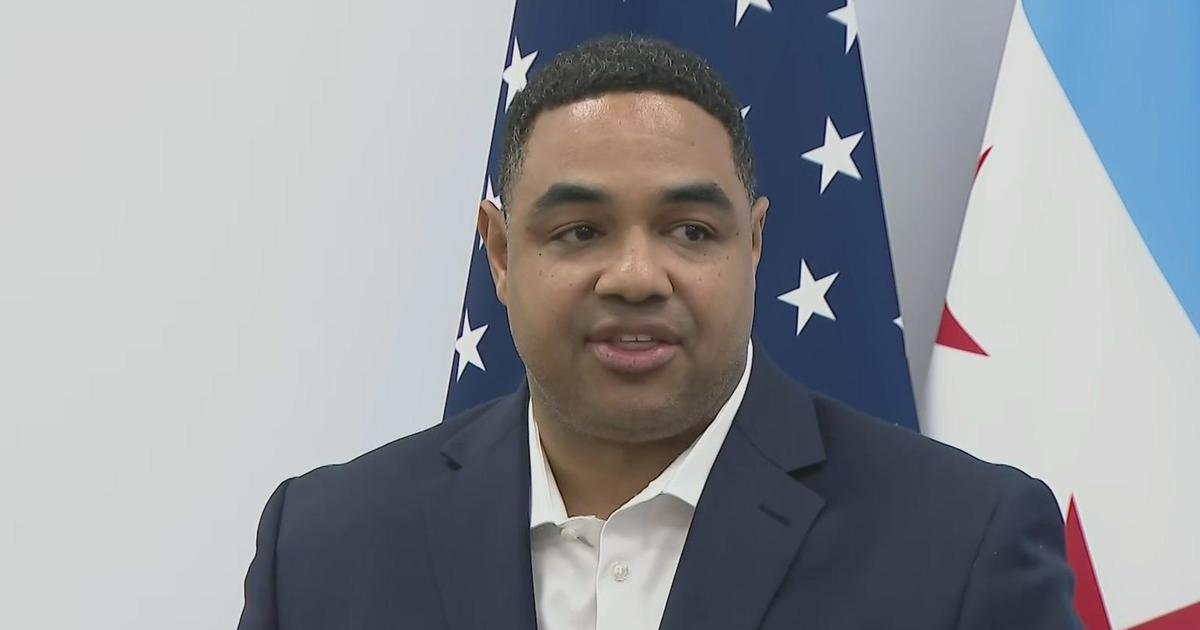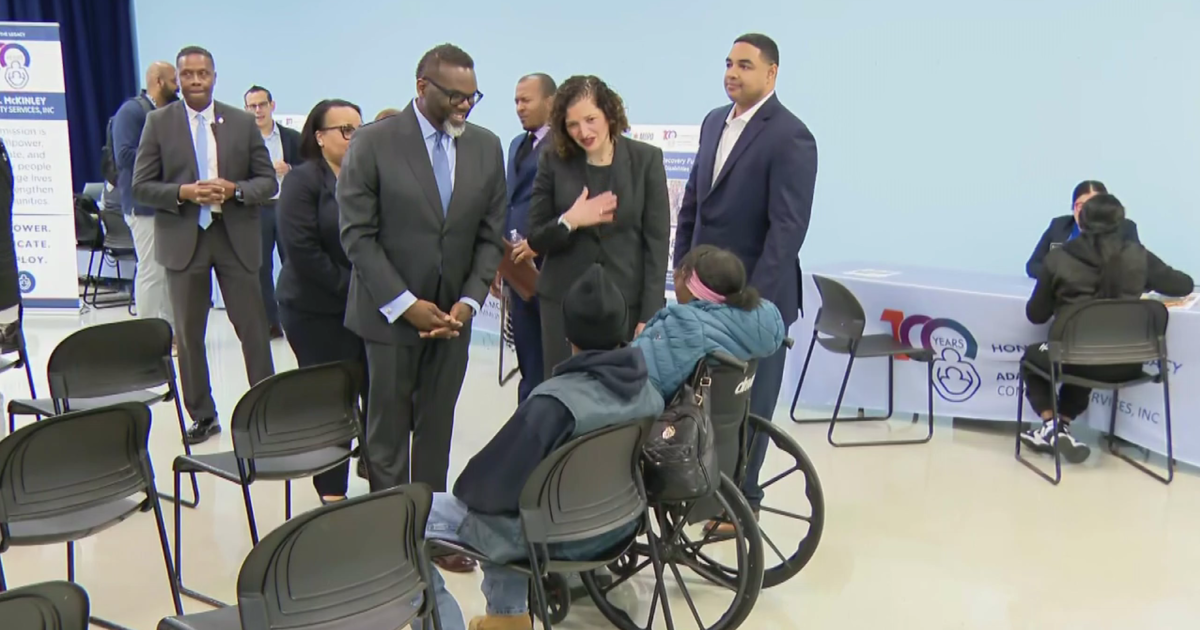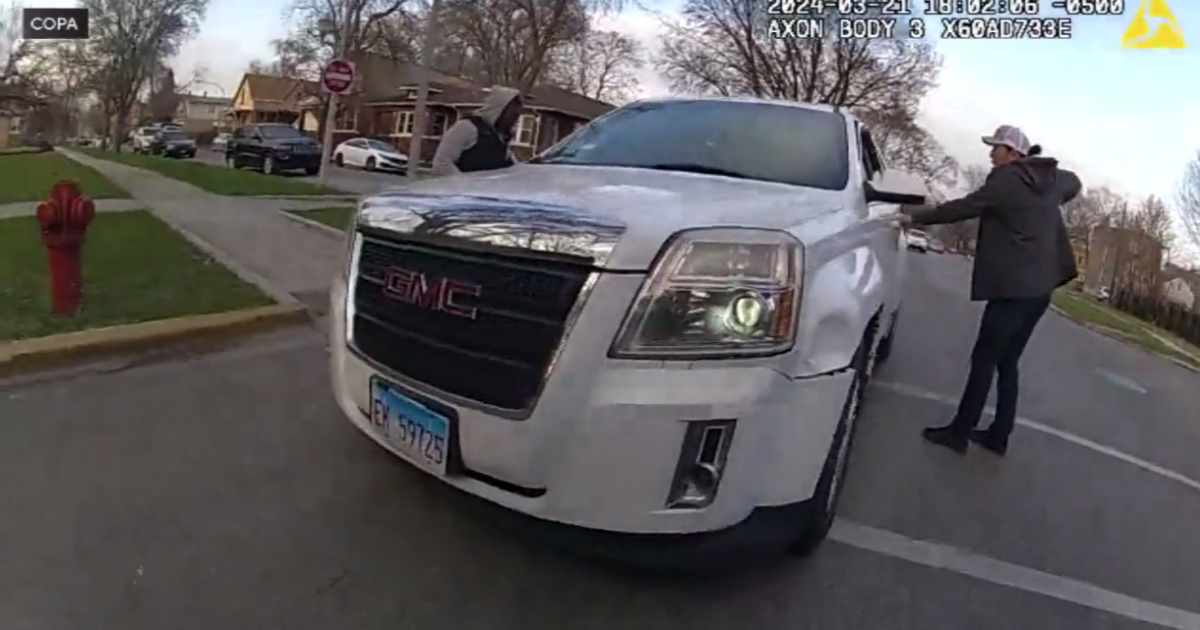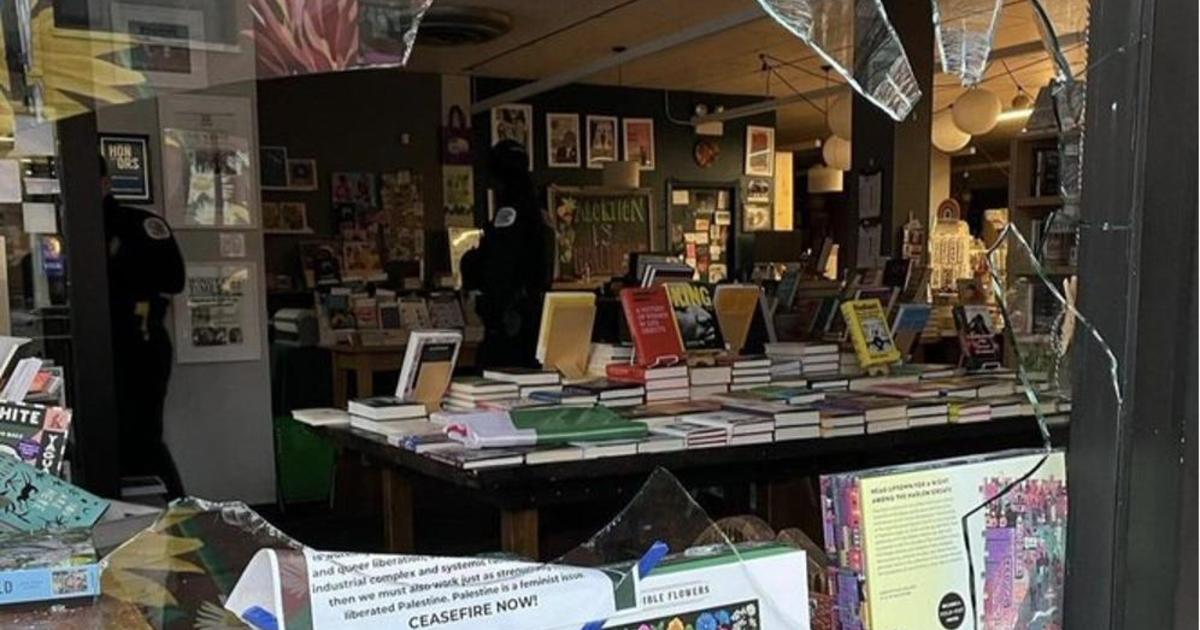A Look Back With CBS 2 At The 1968 Democratic National Convention Unrest And The Chicago 7 Trial
CHICAGO (CBS) -- Protests and unrest, in addition to the COVID-19 pademic, have helped define 2020 in Chicago and around the country.
The unrest hearkens back for some to the turmoil of 1968 and its aftermath, which is the subject of a new Netflix movie, "The Trial of the Chicago 7." In the movie, writer/director Aaron Sorkin tells the story of the Chicago Seven, recreating that tumultuous period on the streets, and in the courtroom.
Federal prosecutors charged eight organizers of the protests during the 1968 Democratic National Convention in Chicago with crossing state lines to incite a riot. In the movie, the trial takes place in a Beaux Arts federal courthouse for which the Newark, New Jersey City Hall stood in, but it actually happened at Ludwig Mies van der Rohe's Dirksen Federal Building, at 219 S. Dearborn St. between September 1969 and February 1970.
But the defendants depicted in the movie, of course, were all real people. At first, there were eight Chicago defendants – Jerry Rubin, Abbie Hoffman, Tom Hayden, Rennie Davis, Bobby Seale, Lee Weiner, John Froines, and David Dellinger.
As shown the movie, Seale argued with U.S. District Judge Julius Hoffman, who ordered Seale bound and gagged. Seale's case was declared a mistrial, and the Chicago Eight became the Chicago Seven. Five of the defendants were convicted but eventually all the convictions were overturned.
They were put on trial by President Richard M. Nixon's Justice Department in connection with the unrest that erupted during the 1968 convention, on which a commission, by contrast, blamed police.
The city had already experienced two major riots in less than a year, the most recent earlier in 1968 following the assassination of Dr. Martin Luther King Jr.
It was with that backdrop that the Democrats decided to hold their national convention in Chicago. Threats and rumors by by some antiwar leaders to disrupt the convention were met by stern security measures from Mayor Richard J. Daley's City Hall.
Television provided the play-by-play as the week unfolded.
In 1988, 20 years after those fateful days, CBS 2's Bill Kurtis had a look back in this CBS 2 documentary, "The Whole World's Watching: 20 Years Later." You saw it again on CBSN this past Friday. It appears here in abridged form.
Part 1 (Watch Above):
A montage of film shows us tensions rising and clashes between protesters and police breaking out in Grant Park, and outside the Chicago Hilton and Towers at 720 S. Michigan Ave. - then known as the Conrad Hilton - where delegates were staying.
Meanwhile, tension also boiled over on the convention floor at the International Amphitheatre, which stood until 1999 at 4220 S. Halsted St. CBS News correspondent Dan Rather was roughed up by security guards at the convention, while Mayor Daley Sr. told CBS Evening News anchor Walter Cronkite that police officers were being attacked in the streets.
Part 2:
The story of the unrest that broke out in Grant Park during the convention from the people who were there at the time, including college students, activists, and police officers -- all speaking 20 years later in 1988.
Part 3:
More of the story of the clashes between police and activists, including recollections from journalists who were caught up in it.
Part 4:
A federal commission led by Dan Walker, a prominent Chicago lawyer who went on to be elected Illinois governor -- and then to be convicted of bank fraud and perjury -- characterized the unrest of 1968 as a police riot. Still, the Chicago 7 went to trial on those charges of crossing state lines to incite a riot. Kurtis talks with some of the major players about those subjects, and CBS 2's Irika Sargent has some closing remarks back in 2020.
MORE FROM CBS CHICAGO
- Stimulus Package Update: What Happens To The Economy Without A Second Stimulus?
- Man Shot While Accompanying DoorDash Driver Says Company Showed No Concern
- Remote Learning Makes Abuse Harder To Spot, Says Chicago Public Schools CEO
Participants in the 1988 documentary included:
• James M. Rochford, deputy superintendent of the Chicago Police Department in 1968. Rochford went on to serve as police superintendent from 1974 to 1977. He passed away in 2004.
• Bill Ayers, a member of Students for a Democratic Society and a founder of the Weather Underground, who went on to become a professor of education at the University of Illinois at Chicago.
• Carl Dobrich, a Chicago Police lieutenant in 1968 who later rose to the rank of assistant deputy superintendent. Dobrich passed away in 2019.
• Steve Zucker, an assistant Chicago Corporation Counsel in 1968 who changed direction to become a sports agent, representing the likes of Jim McMahon. Zucker passed away in 2018.
• Peter Hayward, a college student in 1968 and a university administrator in 1988.
• Ed Phillips, a college student in 1968 an an assistant state's attorney in 1988.
• Raymond Conley, a Chicago Police patrolman in 1968 who was retired from the force by 1988.
• Greg Kyritz, a rookie Chicago Police officer in 1968 who had changed gears to become a sales executive by 1988.
• Michael James, a college student in 1968 who went on along with business partner Katy Hogan to found the Heartland Café, the famed restaurant, performance venue, and community gathering place that operated at the corner of Lunt and Glenwood avenues in Rogers Park from 1976 to 2018.
• Morgan Powell, a college student in 1968 who became a freelance journalist.
• John Dineen, a police lieutenant in 1968 who went on to serve 21 years as president of the Chicago Fraternal Order of Police.
• Sue Purrington, a community activist in 1968 who went on to serve as executive director of the Chicago chapter of the National Organization for Women. Purrington passed away in 2016.
• Frank Sullivan, a Chicago Police spokesman in 1968 who went on to become a magazine publisher.
• Monroe Anderson, an intern at Newsweek in 1968 who was working as press secretary for Mayor Eugene Sawyer in 1988. Anderson also spent 13 years as director of community affairs and station services at CBS 2 and was the host of the CBS 2 public affairs program "Common Ground."
• Paul Sequeira, a photographer for the Chicago Daily News in 1968 who was working as a freelance photographer by 1988.
• Del Hall, a CBS News cameraman in 1968 who was working as a corporate video producer by 1988.
• John Madigan, a news commentator in 1968. Madigan served as news director at CBS 2 earlier in the 1960s, and went on to become political editor and commentator at WBBM Newsradio for many years. Madigan passed away in 2012.
• Robert Pierson, a Chicago Police special investigator in 1968 who was retired by 1988.
• John Hartnett, a Chicago Police deputy chief in 1968 who by 1988 was working as the deputy administrator for the Department of Public Aid.
• Tom Foran, U.S. Attorney for the Northern District of Illinois in 1968. Foran passed away in 2000. He is played by J.C. MacKenzie in "The Trial of the Chicago 7."






